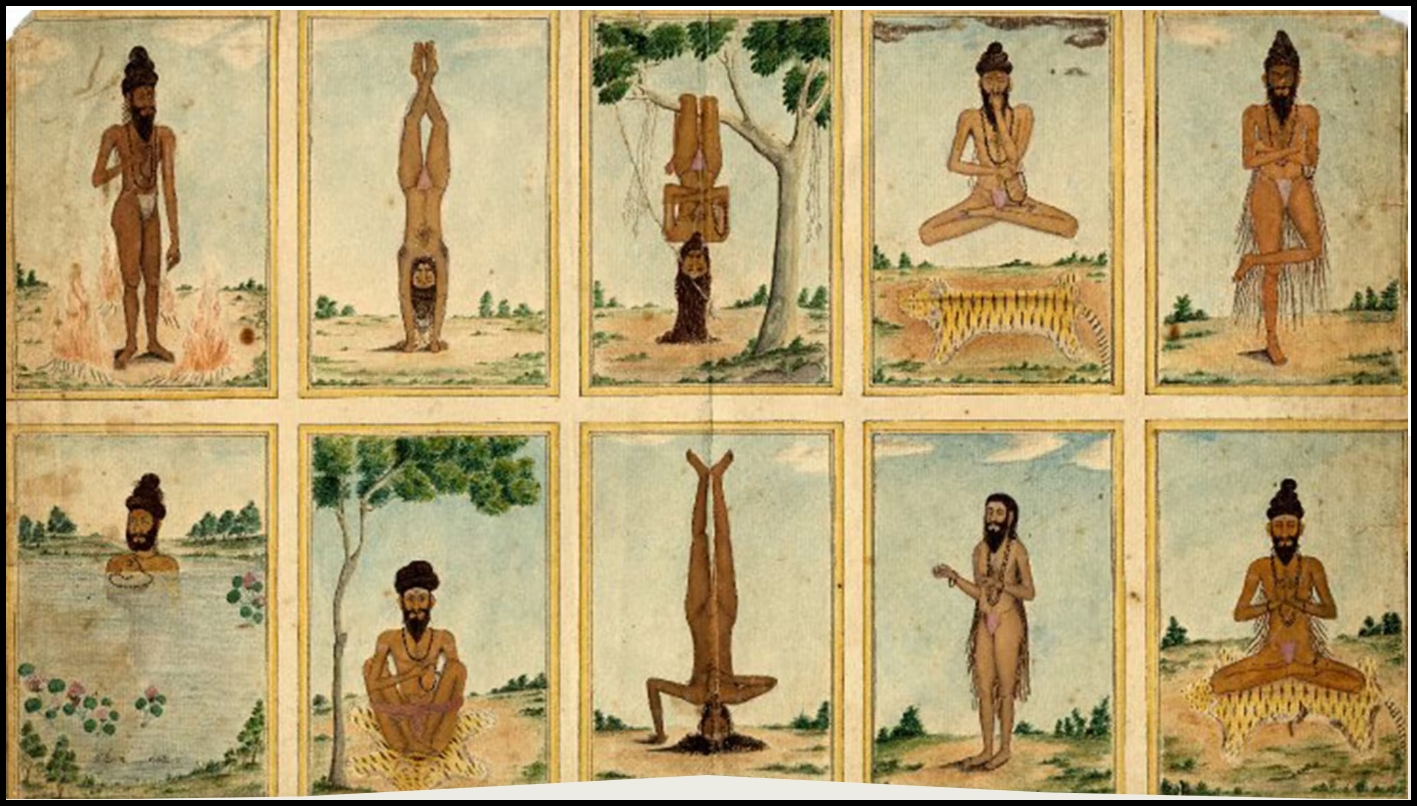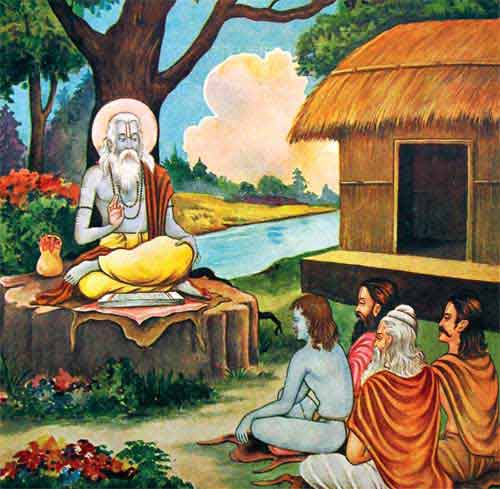YOGA – VEDANTA
Please click on any of the images below to view videos on each topic.

YOGA
The Yoga Sutras, written by the ancient sage Patanjali, are a collection of 196 aphorisms or verses that serve as the foundation of classical yoga philosophy. Providing a systematic framework for understanding the practice of yoga, the Sutras cover various aspects such as ethics, self-discipline, meditation, and spiritual liberation. Divided into four chapters, the Yoga Sutras outline the path to attaining a state of inner peace, clarity, and enlightenment. These timeless teachings continue to inspire and guide practitioners on their journey towards self-realization and personal growth.

VEDANTA
The Upanishads, ancient texts forming the core of Indian philosophy, are a collection of spiritual teachings and insights passed down through generations. The word “Upanishad” translates to “sitting down near” a teacher, emphasizing the oral tradition of transferring knowledge from master to disciple. These profound scriptures explore profound questions about the nature of reality, consciousness, and the self. They delve into the concepts of Brahman (the ultimate reality) and Atman (the individual soul) in a quest to uncover the deeper truths of existence. The Upanishads emphasize introspection, meditation, and contemplation as paths to self-realization and spiritual enlightenment.

YOGA-VEDANTA
Yoga-Vedanta is a spiritual philosophy that combines the teachings of yoga with the ancient Vedanta philosophy. It emphasizes the importance of self-realization, inner peace, and harmony with the universe. Through the practice of yoga postures, breathing techniques, and meditation, individuals can achieve spiritual growth and enlightenment.
Yoga Vedanta teaches that the ultimate goal of life is to realize the true nature of self and connect with the divine essence within. By following the principles of Yoga Vedanta, one can attain mental clarity, emotional balance, and physical well-being, leading to a harmonious and fulfilling life.